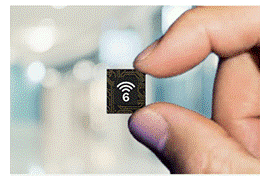The fifth generation of wireless technology has created an unprecedented buzz as it has started its roll-out across the country, but it hasn’t come without its hiccups.
With all the hype around 5G, you would think that its implementation is a sure thing. It’s been hyped as the only thing that will ensure that the Internet of Things economy comes into existence. It has been said that it could replace wired broadband entirely.
And while all of that is true, there are quite a number of roadblocks in the way of full implementation of 5G. Here are the companies looking to fix these potential roadblocks.
Flaw #1: A Branding Problem
When 4G launched in 2009, the actual mobile operators didn’t see that great of returns. But the long-term payout was there because many consumers rushed to the latest and greatest in wireless technology.
Well, some companies have looked to skip the exorbitant expenses and capitalize on the hype surround 5G. Namely, T-Mobile has rolled out a version of 5G that’s more like 4.5G.
Consumers have barely noticed a difference, and it will hurt T-Mobile in the long run as the other major carriers invest in real 5G.
Which brings us to our first two and most obvious companies, 1.) Verizon (NYSE: VZ) and 2.) AT&T (NYSE: T).
Flaw #2: Infrastructure
While 5G, which will be the key to the mass adoption of self-driving cars and the broader internet of things, the infrastructure costs to get to that point will be enormous. Both Verizon and AT&T have decided to take the slow-and-steady approach to make sure they get it right.
You may remember 3.) Nokia (NYSE: NOK) as one of the early cell phone manufacturers back when we were all toting flip-phones instead of smartphones, but they are innovating in a big way today.
The company recently halted dividend payments to invest more in 5G technology, but had a better-than-expected end of the year. But a recent move by BCE Inc., one of Canada’s largest telecom provider should have investors salivating.
BCE Inc. just signed an agreement with Nokia on February 6th to build its Canadian 5G network. Nokia has also landed 40 5G contracts including AT&T, Sprint, three South Korean operators, China Mobile, SoftBank, Docomo in Japan, and Vodafone in Italy, according to Forbes, making it a major leader in the 5G industry.
The “Fatal Flaw”
According to Business Insider, 4G wavelengths have a range of about 10 miles, which for most of the country, seems like it’s too short of a distance given the number of cell phone towers across the country. Still, companies can place these towers strategically so that they are only an occasional eyesore for most of the world.
Now, 5G wavelengths have a range of about 1,000 feet. That’s not even 2% of the 5G’s range. To truly roll out 5G in its current state, a lamppost or traffic light on every corner will need a tower or an antennae of some kind.
Bonus: Tiny $8 Company Moves in to Solve Major 5G Glitch
Without the technology of this one tiny company, there will be no 5G rollout across America.
That’s why Facebook, Lockheed Martin, L3, Sprint, T-Mobile, China Satcom, and dozens of networks are banging on this company’s door.
And for the first time, this tiny $8 company is about to roll out this long-awaited technology.
To be one of the first to get in on this big stock market opportunity…






